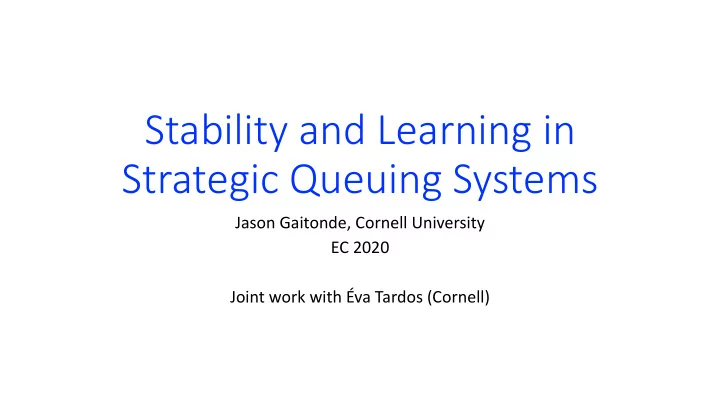

Stability and Learning in Strategic Queuing Systems Jason Gaitonde, Cornell University EC 2020 Joint work with Éva Tardos (Cornell)
Motivation: Learning in Repeated Games • No-regret learning in repeated games has many attractive features • Critical assumption: no carryover effect between rounds Second-by-second packet traffic Morning rush-hour traffic We study the quality of competitive, learning outcomes in a selfish queuing system with this carryover effect.
Strategic Queuing Systems: Results • Selfish queues receive packets stochastically, compete to clear them at servers à unprocessed packets returned to queues to be resent Main Results [G-Tardos ’20] • Servers serve oldest packet first: no-regret learning helps coordinate selfish queues with just twice service rate needed for centralized feasibility • Servers serve packets uniformly at random: learning need not help coordinate queues, unless prohibitively large service rates • Proof techniques: coupling/deferred decisions, supermartingale arguments, concentration to analyze highly dependent stochastic process
Proof Ideas & Details • Use potential function argument to argue queue sizes remain bounded in expectation • Show that no-regret condition & slack factor of 2 together imply older queues with priority must be using the best servers enough to decrease on average on long window • Apply at all scales to prove potential decreases with high probability • Use deferred decisions/coupling to study queue ages rather than sizes • Apply concentration to show queue and server behavior is sufficiently well-behaved
Recommend
More recommend